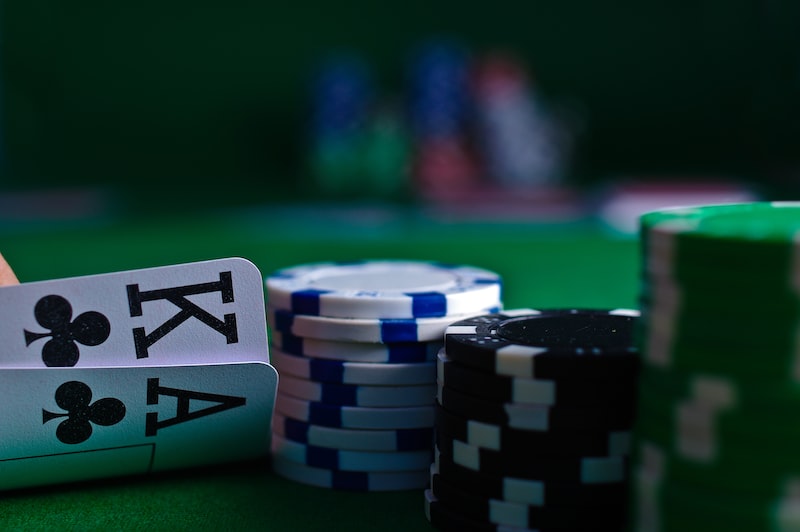To get better at poker, it’s not enough that you play the game. You also have to learn how to improve your game by taking a few lessons. Here are a few of them. You need to learn many more things, but these are a good start.
1. Read books on poker strategy

Poker is one game that is easy to pick up but hard to master. There won’t be many books about poker strategy if it isn’t. Take some time off the game and money from betting; spend a bit of both on these reading materials, and you could win more matches.
2. Study the game using online training sites or apps
There are lots of sites and apps that offer poker training. Some are free, while others come at a price. Choose one that suits your budget and needs. Then, make it a habit to study for at least 30 minutes daily.
3. Join a community or forum of poker players
This is a great way to learn from other players and get feedback on your game. When joining a community, be active and contribute constructively to the conversations.
4. Play online
Playing poker online is a great way to practice and improve your game. You can play as much or as little as you want, and players of all levels are always available to play against. You can even play free poker. An excellent example is GG Poker, a great place to practice poker and play for real.
5. Get a coach
If you’re serious about poker, consider getting a coach. A good coach will teach you the game and help you with your mental game.
6. Analyze your hands
When you lose a hand, it’s easy just to move on and forget about it. But if you want to improve your game, you need to take the time to analyze your hands. What went wrong? What could you have done better? This is the only way you’ll learn from your mistakes.
7. Set aside time for poker
If you want to learn how to play poker, you need to set aside time for it. You can’t just play when you have nothing else to do; you need to commit to playing and improving.
8. Be patient
Poker is a long game; you need to be patient if you want to succeed. Don’t get frustrated when you lose a hand or two; just keep playing, and eventually, the wins will come.
9. Keep a poker journal
A poker journal is a great way to track your progress and reflect on your game. Every day, write down the hands you’ve played, what you did well, and what you could have done better. This will help you see your progress over time and identify areas that need improvement.
10. Take a break when you need to
Pixabay/jackmac34
Poker can be a stressful game, and taking a break is essential. Step away from the table and take some time if you’re feeling tilted, frustrated, or just plain burned out. You’ll come back refreshed and ready to win.
11. Manage your bankroll
This is one of the most important aspects of poker. You need to be disciplined with your money and only bet what you can afford to lose. If you don’t, you’ll quickly go broke and be out of the game.
12. Know when to quit
There will be times when you’re ahead, and there will be times when you’re behind. But no matter what, you need to know when to quit. If you’re losing, don’t keep trying to win back your losses; cut your losses and move on. The same goes for when you’re winning; don’t get too greedy and give it all back.
13. Don’t play when you’re drunk
This should be obvious, but it bears repeating: never, ever play poker when you’re drunk. You’ll make bad decisions, and you’ll end up losing money.
14. Don’t bluff too much
Bluffing is a part of poker games, but if you do it too much, you’ll get caught and lose money. Only bluff when you have a good reason to do it, and don’t do it too often.
15. Be careful with your tells
Tells are the little cues that give away how you feel about a hand. If you’re not careful, your opponents will pick up on them and use them against you. So, be aware of the tells you might be giving off, and try to disguise them as best you can.
Smell the roses as you learn to play poker
There you have it; 15 poker lessons to go by. Don’t try to take them all in at once; just take your time and enjoy the journey. Slowly but surely, you’ll be a much better poker player, and appreciate the lessons you’ve picked up and the fact that you’ve greatly improved. Have fun and good luck!